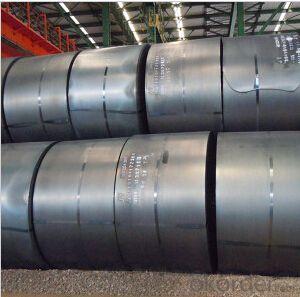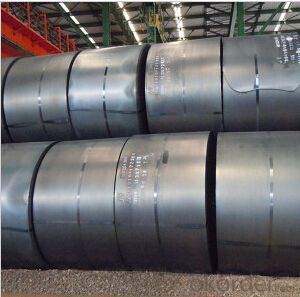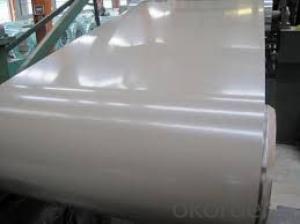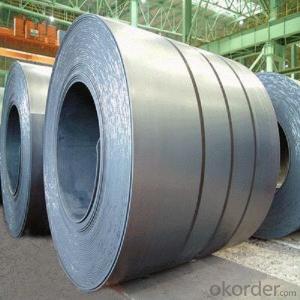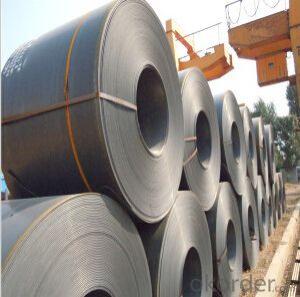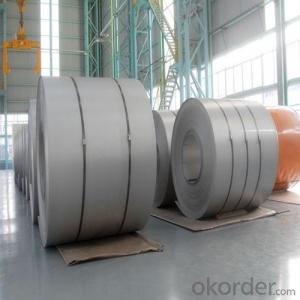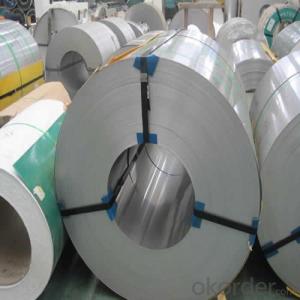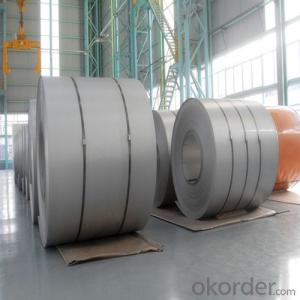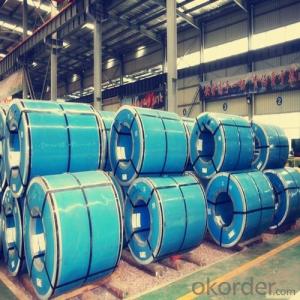Refined Hot Rolled Carbon Steel Coil (1.0mm-1.1mm SS400)
- Loading Port:
- Tianjin
- Payment Terms:
- TT OR LC
- Min Order Qty:
- 25 m.t.
- Supply Capability:
- 50000 m.t./month
OKorder Service Pledge
OKorder Financial Service
You Might Also Like
Refined Hot Rolled Carbon Steel Coil description:
Model NO.:SS400/Q195/Q235
Surface Treatment:Coated/Galvanized
Technique:Hot Rolled
Standard:ASTM, JIS, GB, AISI, DIN, BS
Steel Grade:Ss400/Q195/Q235
Thickness:1.0mm/1.1mm
Width:1000mm-1500mm
Export Markets:South America, Eastern Europe, Southeast Asia, Africa, Oceania, Mid East, Eastern Asia, Western Europe
Packing:by Export Standard Packing
Standard:Q235, SS400
Origin:China
Product Description
Hot rolled steel coil
Material:Q195,Q235,SS400,SM400(A.B),S10C-S55C,ST37-2,ST37-3,1010-1050,S235(JR.J0.J2G3.J2G4)
Thickness: 1.0-1.1mm
Width: 1000-1500mm
Application: Widely used in construction, household appliance, automobile, light industry, etc
Other: Hot Dipped Galvanized Steel Coil
Export packing
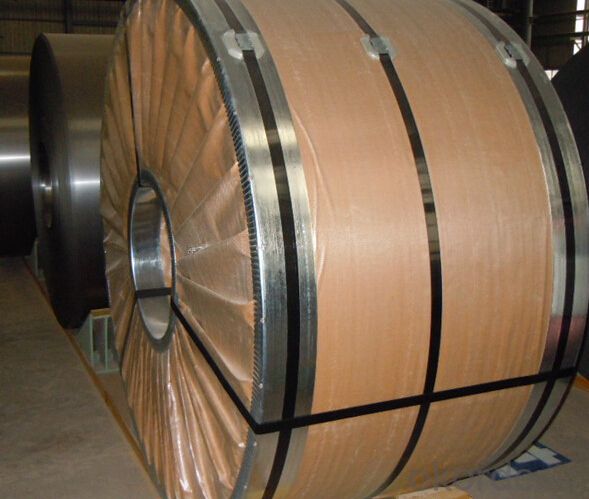
Useing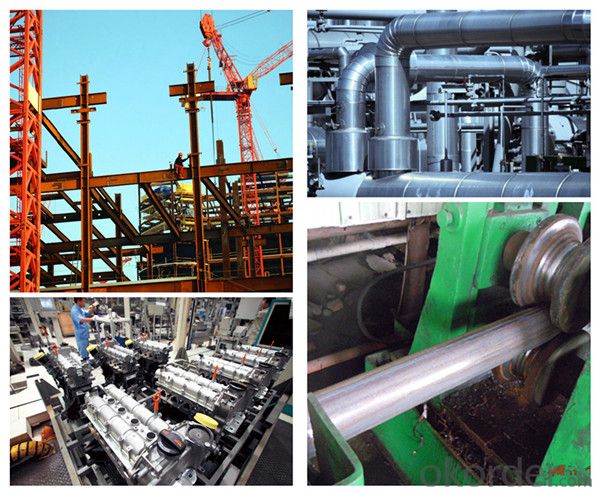
FAQ:
Acceptable payment term and way?
T/T,L/C, T/T + L/C, D/P
Acceptable price term
FOB CNF CIF DDU CPT
Do you accept OA payment terms?
Yes, sure, but it normally depending on the order value
Do you have QC team?
Yeah, sure, our QC team is very important, they will keep the qualitycontrol for our products.
What is the validity of your quotation?
Normally 7 days.
What is your advantage?
24 hour quick response /Customer oriented/ Credit foremost/ Top quality Excellent
What is your acceptable payment term?
TT,LC,OA etc
- Q: How are steel coils used in the production of storage shelves?
- Steel coils are an essential component in the production of storage shelves. These coils are typically made from carbon steel and undergo a series of processes to shape them into the desired form. The first step in using steel coils for storage shelves is to unroll and flatten the coil. This is done using a machine called a decoiler, which unwinds the coil and feeds it through a series of rollers to flatten the metal. Once the coil is flattened, it is ready for further processing. Next, the flattened steel is cut into specific lengths using a shearing machine or a saw. These cut pieces are then bent and shaped into the appropriate dimensions for the storage shelves. This bending process is typically done using a press brake or a roll former, which applies pressure to the metal to create the desired shape. Once the steel has been shaped into the proper dimensions, it is welded together to form the structure of the storage shelf. This welding process ensures that the shelves are strong and durable, capable of supporting heavy loads. After the welding is complete, the storage shelves may undergo additional processes such as surface treatment or coating to enhance their appearance and protect them from corrosion. These treatments can include processes like powder coating, galvanization, or painting. Overall, steel coils play a crucial role in the production of storage shelves. They provide the raw material from which the shelves are made, and their versatility allows for a wide range of shapes and sizes to be created. The strength and durability of steel make it an ideal choice for storage shelves, ensuring that they can withstand heavy loads and provide long-lasting storage solutions.
- Q: basically a builder told us steel is good but when we got MFI, BQ they only have acrylic
- Steel is expensive and heavy - the porcelain finish can be chipped and scratched. Yes it is colder - like your cook pots. Acrylic is cheaper, lighter and easier to handle for the installer. It can get scratched. There are companies that can refinish an old tub by putting an acrylic liner over it instead of removing and replacing the old steel ones. Acrylic has come a long way. But I still prefer steel.
- Q: Don't ask me why, but I took my stainless steel ring and I heated it up with my gas stove. I stuck it in there til the metal turned red, and the flame which is normally blue turned orange for some reason when the metal turned red. Anyway, afterwards i cooled it off in water and now it's all discolored and it feels different. It's weighs less and it doesn't feel the same. Plus, it's ugly cause it's all black and blue. What happened? Someone help
- Stainless steel has a rating. I don't know what your ring's stainless steel rating is. If you know, you can look it up. The rating will tell you how much steel vs other metal it has (usually Cr and Ni). But usually when you heat the stainless steel to extreme temperature it will discolor due to oxidation. What is worse is that you cooled it off in water (I assumed that you did it while it was still hot). By rapid cooling, you have changed the physical structure of the steel itself. It will change the hardness of the steel. That is why it feels different. Look up on annealing, normalizing, quenching and tempering under heat treatment for steel.
- Q: How are steel coils different from steel sheets?
- Steel coils and steel sheets are both made from the same material, which is steel. However, they differ in terms of their shape and size. Steel coils are long, continuous rolls of steel, usually wound up in a coil form, while steel sheets are flat, rectangular pieces of steel. The main difference lies in their applications - steel coils are commonly used in industries where large quantities of steel are required for manufacturing processes, such as automotive or construction, whereas steel sheets are often used for smaller-scale projects or as a raw material for further processing.
- Q: I need to know how you rate the hardness of steel any ideas?
- There's an instrument called a hardness tester. It has a stylus which is pressed into the surface of a sample of steel with a calibrated amount of force. The distance it penetrates tells you how hard the steel is. (This is sometimes called 'indentation hardness'). The most common scale is the Rockwell Scale. Actually it gets a little complicated because there are several scales, one for tungsten carbide (the hardest man-made material), one for aluminum and brass and soft steels, and one for hardened steels. Another scale for indentation hardness is the Brinell scale. It's a little less complicated, with one scale to measure the hardness of wood, plastic, etc. as well as steel.
- Q: How does adding carbon to Iron make it stronger? How does steel look the molecular structure in comparison to Iron? looking for a very scientific answer =]
- Cast Iron' is typically brittle, while 'Maleable Iron' has a small percentage of carbon which allows it to be hammered and formed. Steel is an alloy that consists mostly of iron and has a carbon content between 0.2% and 2.1% by weight, depending on the grade. Carbon is the most common alloying material for iron. Steel is a crystalline structure of iron molecules interspersed with carbon molecules. This is properly known as cementite. The hardness and malleability of steel depends not only on the carbon content, but on how the carbon and iron molecules are arranged to one another. Internal stresses in the steel's crystalline structure will increase or decrease depending on the temperature it is subjected to and the rate at which molten steel is cooled. This 'tempering' can increase the strength of the steel at the expense of brittleness.
- Q: I am doing a experiment on mild steel soaked in sodium chlorideanyone can enlighten me about the effect of the sodium chloride in engineering term ?The mild steel specimen which I soaked in the sodium chloride has orange rust on it
- The mild steel contains a lot of Iron. The NaCl solution quickly attacks the iron content and forms rust. Over time, the solution may also cause what is called 'Chloride Cracking' of the steel. Pitting corrosion of stainless steel due to chlorides would certainly produce a rust-colored product. Passivation can be used to maintain a good corrosion resistant surface of stainless steel process vessel. There are many commercial products for this purpose. In the pharmaceutical industry, this process is often called derouging, that is to remove the buildup of iron oxides on the stainless steel process surfaces
- Q: would you consider steel a flexible substance...i am debating this with my coworkers.Thanks,
- Yes, steel is flexible. Springs, like the ones holding up your car, are made out of steel. One reason why steel skyscrapers do so well in earthquakes is because steel is flexible. Piano wires are made out of steel. High tension wires for electric power transmission are made out of steel. Even a solid block of hard steel can actually bend and spring back, although it's very hard to see this tiny flexure.
- Q: How are steel coils used in the production of HVAC equipment?
- Steel coils are used in the production of HVAC equipment primarily for their heat transfer capabilities. These coils, made of high-quality steel, are essential components in the heat exchangers of HVAC systems. They help facilitate the transfer of heat between the refrigerant and the surrounding air, allowing for efficient heating or cooling. The steel coils are typically designed with fins or tubes to increase the surface area and enhance heat transfer efficiency, ensuring optimal performance and energy efficiency in HVAC units.
- Q: How are steel coils used in the production of agricultural machinery?
- Steel coils are used in the production of agricultural machinery as they are a key component in the manufacturing of various parts. These coils are used to create durable and strong components such as frames, chassis, and structural supports, which are essential for the heavy-duty requirements of agricultural machinery. The steel coils are shaped, cut, and welded to create these components, ensuring the machinery can withstand the demanding conditions of farming operations.
Send your message to us
Refined Hot Rolled Carbon Steel Coil (1.0mm-1.1mm SS400)
- Loading Port:
- Tianjin
- Payment Terms:
- TT OR LC
- Min Order Qty:
- 25 m.t.
- Supply Capability:
- 50000 m.t./month
OKorder Service Pledge
OKorder Financial Service
Similar products
Hot products
Hot Searches
Related keywords
